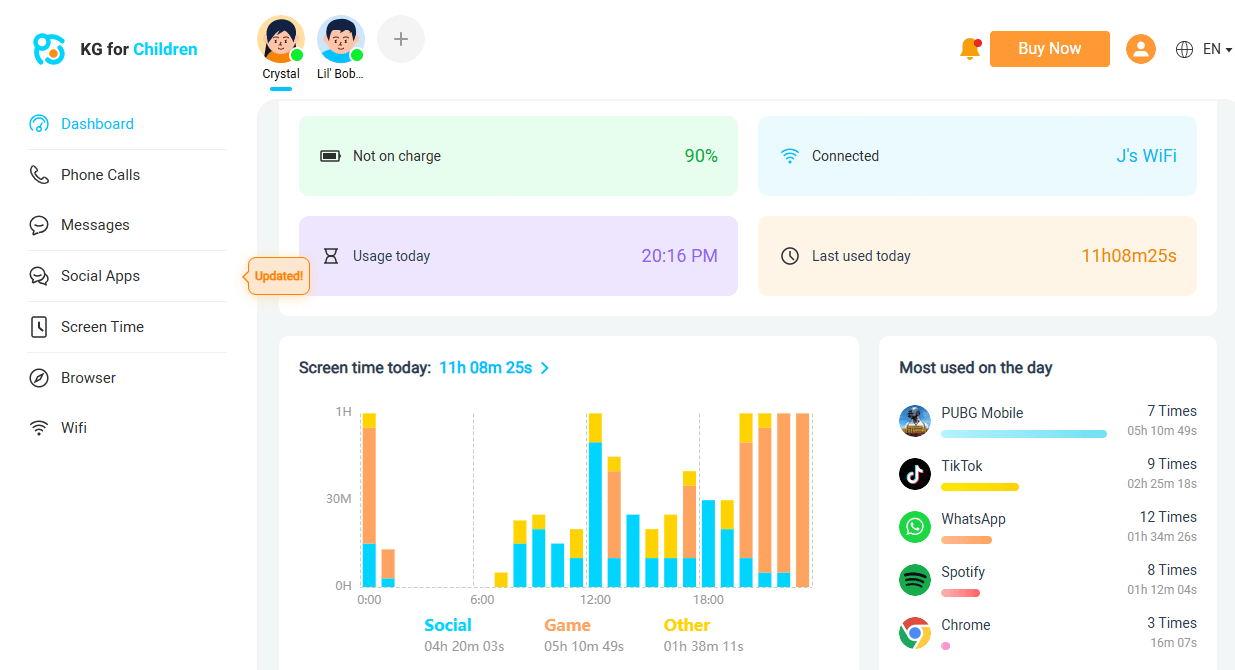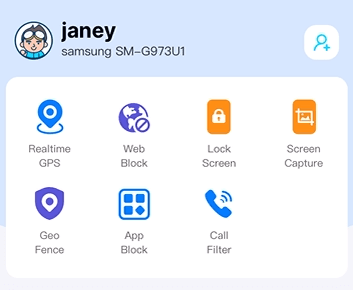ClevGuard Support: Monitor Devices with Others' Permission.
Dealing with spoiled children can be a challenge for parents, teachers, and caregivers. When children are given everything they want and lack boundaries, they can become aggressive and stubborn. In this guide, we will explore the causes of spoiled behavior, signs of a spoiled child, the consequences of being spoiled, and most importantly, effective strategies on how to deal with spoiled children. Let's continue!

Table of Contents
Part 1: Signs of a Spoiled Child
Recognizing the signs of spoiled behavior in children is crucial for early intervention. Here are some common signs that a child is spoiled:
Refusal to Follow Rules: Spoiled children often resist following rules and boundaries set by parents or authorities. They may believe they should be exempt from consequences.
Tantrums and Outbursts: Spoiled kids might throw a lot of tantrums and get upset when they don't get their way.
Lack of Empathy: Spoiled kids might struggle to understand how others feel. They may be self-centered and focused only on their own needs and desires.
Materialistic Attitude: Spoiled children might think that having a lot of stuff makes them more important. They might believe that what they own says a lot about who they are.

Entitlement: Spoiled children always expect to be treated special and believe they deserve special privileges without having to earn them.
Disrespectful Behavior: Spoiled kids might not show much respect to grown-ups, friends, or even their own family. They may disregard rules and boundaries.
Part 2: How to Deal with Spoiled Children
Using KidsGuard for Children to Fix A Spoiled Child
To fix a spoiled child, you can use parental control software, such as KidsGuard for Children. It can effectively handle spoiled children as it allows parents to monitor and manage their children's digital activities. You can use it to block specific apps and games to protect them, below are the reasons why I recommend it:

App and Website Blocking: Parents can block unsuitable apps and websites for their children to make rules, helping them establish authority and preventing spoiled children.
Screen Time Control: With KidsGuard for Children, parents can set limits on their child's screen time, promoting a healthy balance between digital and offline activities.
Call and Text Monitoring: You can view your child's text messages and call logs, helping them stay aware of their child's communication. It can prevent your kids from being misled by friends.
Social Media Monitoring: KidsGuard for Children allows you to monitor your child's social media accounts, ensuring they are not engaging in inappropriate or harmful behavior.
Real-time Location Tracking: Avoid overprotection, you can use KidsGuard for Children to secretly keep tabs on your child's whereabouts and ensure their safety.
3 Steps to Set up Parental Control with KidsGuard for Children:
Step 1. Create an account of KidsGuard for Children.
Step 2. Install the KidsGuard for Children app on your child's device.
Step 3. Now log in to the KidsGuard for Children dashboard, and start handling spoiled children.

Other Strategies to Deal with Spoiled Children
Dealing with spoiled children requires a combination of patience, consistency, and effective communication. Here are some strategies to help you unspoiled a child:
- Set Clear Boundaries: Establish clear rules and expectations for your child's behavior. Consistently enforce these boundaries and ensure there are consequences for breaking them.
- Teach Empathy: You can teach your child empathy by encouraging them to consider and understand the feelings of others. Foster a sense of compassion and kindness.
- Encourage Independence: Promote independence by giving your child age-appropriate responsibilities and encouraging them to make their own decisions.
- Teach Gratitude: Help your child appreciate what they have by encouraging gratitude. Teach them to express appreciation for the things and experiences they have been given.
- Limit Material Rewards: Reduce the focus on material possessions and instead emphasize the value of experiences, relationships, and personal growth. It's the most straight way to fix a spoiled child.
- Model Appropriate Behavior: Be a role model for your child by exhibiting the behavior you want them to emulate. Show them how to handle challenges and conflicts respectfully and constructively.

Part 3: What Causes a Child to Be Spoiled?
Spoiled behavior in children can be attributed to various factors. It is important to understand these factors to effectively address and prevent spoiled behavior.
Overindulgence by Parents: When parents fulfill every need and desire of their child without setting appropriate boundaries, it will encourage children to be spoiled.
Not Enough Rules: If parents are too easygoing and don't hold their kids responsible for their actions, the little ones might start thinking they can do whatever they want, and get away with anything.
Excessive Materialism: When children are overly focused on material possessions and believe their worth is defined by what they own, they may display spoiled behavior.
Overprotection: If parents shield their children too much from consequences, it could lead to those kids acting a bit spoiled.

Lack of Emotional Connection: Children who don't feel close to their parents might try to get attention and validation by acting spoiled.
Friends Pressure: The behavior of their friends can influence children, and if they observe entitled behavior in their friends, they may imitate it.
Media Influence: When kids see lots of messages about having everything right away and valuing things a lot, it can make them act a bit spoiled too.
Part 4: What Happens When a Kid Is Spoiled
Being spoiled as a child can have negative effects on a child's mental well-being and overall development. So it's essential to handle spoiled children. Here are some possible consequences of being spoiled:
- Trouble with Feelings: Spoiled kids might find it hard to control their emotions and deal with things not going their way. When faced with problems or disagreements, they could struggle to handle them well.
- Poor Relationship Skills: Spoiled children may have difficulty forming and maintaining healthy relationships. Their self-centered behavior can hinder their ability to understand and connect with others.
- Unrealistic Expectations: When kids are spoiled, they might think they deserve special treatment all the time. They may struggle to adapt to the realities of the world outside their bubble of privilege.
- Lack of Resilience: Spoiled children might find it hard to bounce back when things don't go their way. They might get upset easily and struggle to keep going when faced with tough situations.
- Difficulty in School and Work: Spoiled children may struggle academically and professionally. Their lack of discipline and the belief that they deserve everything might make it tricky for them to do well in school or keep a steady job.
FAQs about Spoiled Children
A: Yes. With consistent and effective parenting strategies, a child can learn to overcome spoiled behavior and develop more positive and mature behavior patterns.
A: If you're finding it hard to make a positive change in your child's behavior, consulting a child psychologist or therapist may be beneficial.
Conclusion
Dealing with spoiled children can be challenging, but with the right strategies and approach, it is possible to help them develop healthier behavior patterns. After reading this guide, I'm sure you find the methods on how to deal with spoiled children. How about we test it out?






